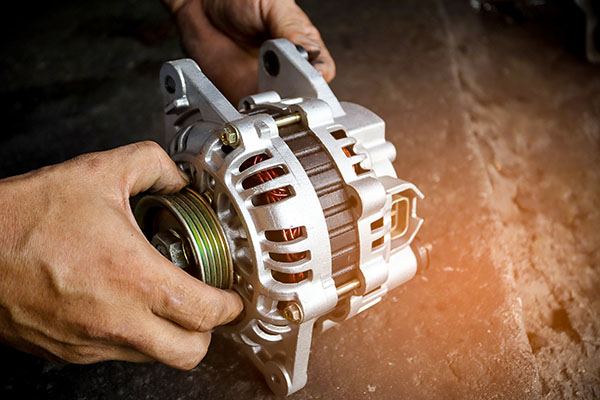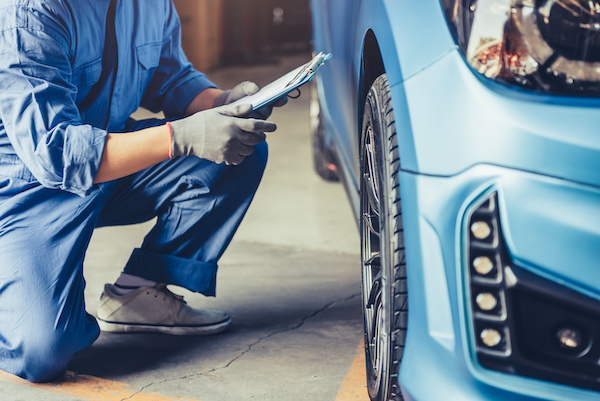Posted on 4/13/2023

Why Is My Car Not Starting? There are multiple reasons why your vehicle won’t start from time to time and there are a couple different sayings we use to determine what kind of no start condition the vehicle is having. A no crank no start condition is used to describe when you attempt to start your vehicle and nothing happens, the engine isn’t turning over and there are no sounds when trying to start. A cranks but won’t start condition is when attempting to start your vehicle and the engine is turning over or cranking but it won’t run on its own. No Crank No Start Condition? A no crank no start condition is usually, either the battery is no longer providing proper electrical power enough to turn the engine over, the starter has gone bad and is no longer cranking the engine over, or the engine has had a catastrophic failure and has seized. Cranks, But Won’t Start? When a vehicle will turn over or crank ... read more
Posted on 3/30/2023

Before we get into everything else, first you have to know what an alternator is. We can explain in detail, but let's leave mechanical talk to the specialists at the shop. Here is a simple explanation. When your engine is working, one or more pulleys are connected to it. These pulleys transfer mechanical energy using belts or chains to the surrounding components that need it. One of the main ones is the alternator. It converts mechanical energy to electricity, charging the battery. This is the main supply of electricity the battery gets, and if it fails, curtain signs occur - here are some of them, so you know when to go to the repair shop to save up on future headaches. 1. Battery Light Turns On The main reason for your car's battery light to come on is not a bad charge, but a faulty alternator. When there is no energy going in and a lot going out, the result is a loss of charge. This happens when the alternator doesn't charge the battery. It can be caus ... read more
Posted on 3/23/2023

How Does A Differential Work? There are multiple types of differentials and they all function differently, were going to talk about the most common differential which is called an open differential. Simply put the differential takes the power coming from the engine and splits it between the two wheels it is turning. The rear drive line attaches to either the back of the transmission or the transfer case depending on if its 4WD or not, as the engine transfers power through the transmission and into the drive line forcing it to rotate, the gears that are inside the differential housing, in turn rotating the axles which are attached to the tires allowing you to move forward and backward. Much like an engine these gears are suspended in a special gear oil that should be regularly changed. How Often Should I Service My Differentials? Most manufacturers have different service intervals for each fluid, and most recommend having the differentials servic ... read more
Posted on 2/28/2023

https://www.youtube.com/shorts/gqABdESPnFQ Why does my car make a rattling noise when started? Rattling on cold start up is usually an indication of a timing chain issue. Timing chains synchronize the crankshaft and camshafts so they rotate at the proper time for the engine to run properly. The example vehicle we have today has 2 camshafts per cylinder head one for the intake stroke and one for the exhaust stroke totaling in four camshafts. The camshafts are connected to the crankshaft with a timing chain. There are multiple other components that are also used like timing chain tensioners and timing chain guides to help keep the chain tracking normally and remaining tight at all times. The crankshaft and camshafts sprockets are designed much like the sprockets on a chain driven bicycle with little points that fall into the chain one at a time and spin around. As the crank shaft rotates the timing chain is pulled wit ... read more
Posted on 2/27/2023

Vehicle preventive maintenance refers to the regular and proactive maintenance of a vehicle to ensure that it is running at its peak performance and remains in good condition. This involves inspections, cleaning, lubrication, and replacement of parts to keep the vehicle operating smoothly and safely. The goal of preventive maintenance is to prevent costly repairs and breakdowns, maximize fuel efficiency, and extend the lifespan of the car. What Does Preventive Maintenance Mean? Regular vehicle preventive maintenance includes a variety of tasks, such as changing the oil and oil filter, checking and topping off fluids, replacing air and fuel filters, checking and replacing spark plugs, inspecting the brakes and tires, and checking the battery and electrical system. It also involves periodic inspections of the suspension and steering components, belts and hoses, and other critical parts of the vehicle. How Does It Help? Preventive maintenance can help identify potential problems befor ... read more